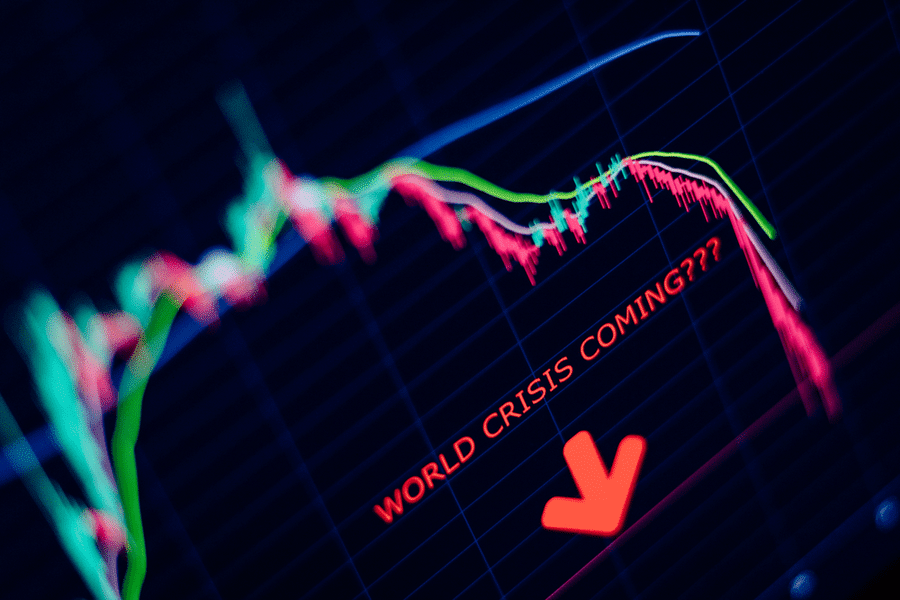
Investing in times of crisis
Investors often worry about the possible arrival of recessions or a crisis. This anxiety is often fueled by historical events or the influence of the media. In this blog, we focus on the effect of a crisis on stocks and bonds . We also discuss whether it is smart to invest differently in times of crisis.
Impact of crisis on stocks
During a crisis, fear of bankruptcy is the driving force behind falling prices on the stock exchange. Shares are often the biggest victim. In the event of bankruptcy, shares of a company become virtually worthless; shareholders are the last to receive the payment of the remaining funds in the event of bankruptcy.
To prevent losses, shares are usually sold first in times of crisis. When investors sell their shares en masse, a wave of sales, prices can fall quickly and sharply. When there is a fall of -25% or more, we speak of a crisis on the stock exchange.
Impact of crisis on bonds
Bonds are less risky than stocks. When a company goes bankrupt, bondholders, in effect creditors, are ahead of shareholders in paying out the remaining funds. Corporate bond prices therefore fall less sharply than stock prices in a crisis.
In addition to corporate bonds, there are also government bonds. Investors see bonds from countries such as Germany, the Netherlands and Switzerland as very safe investments. In a financial crisis, investors buy these bonds to secure their money. When panic grows on the stock exchange, the prices of government bonds from these “safe” countries rise.
A different investment strategy during a crisis?
No one can predict with certainty that a crisis is approaching. Let alone predict when the stock markets have reached their peak and when the bottom is in sight. The markets are far too unpredictable for that. Scientific research shows time and again that timing the stock market can cause major losses. By regularly entering and exiting, you miss out on a lot of returns in the long term.

The best investment strategy is to create a well -diversified portfolio and to remain calm in times of crisis. In good times, equities benefit from economic growth, while government bonds provide dampening or even compensation in times of crisis. Asset managers can help with this and are specialized in creating a well-diversified portfolio.
Stay calm. That may sound like a wait-and-see attitude. But history shows that an investor is rewarded with higher returns in the long run . Even the world’s most successful investors agree with this strategy. “The stock market is a device to transfer money from the impatient to the patient”, says super investor Warren Buffett.
